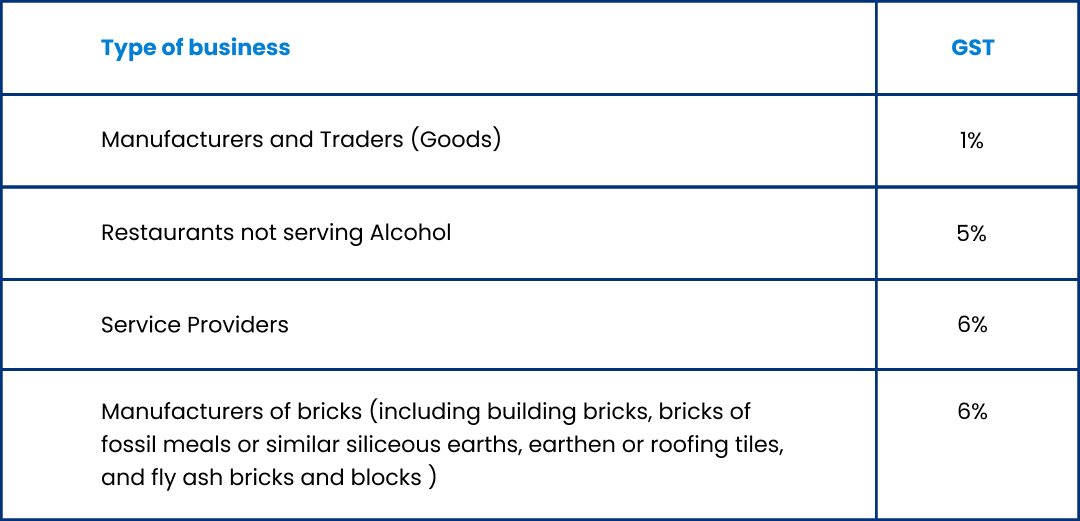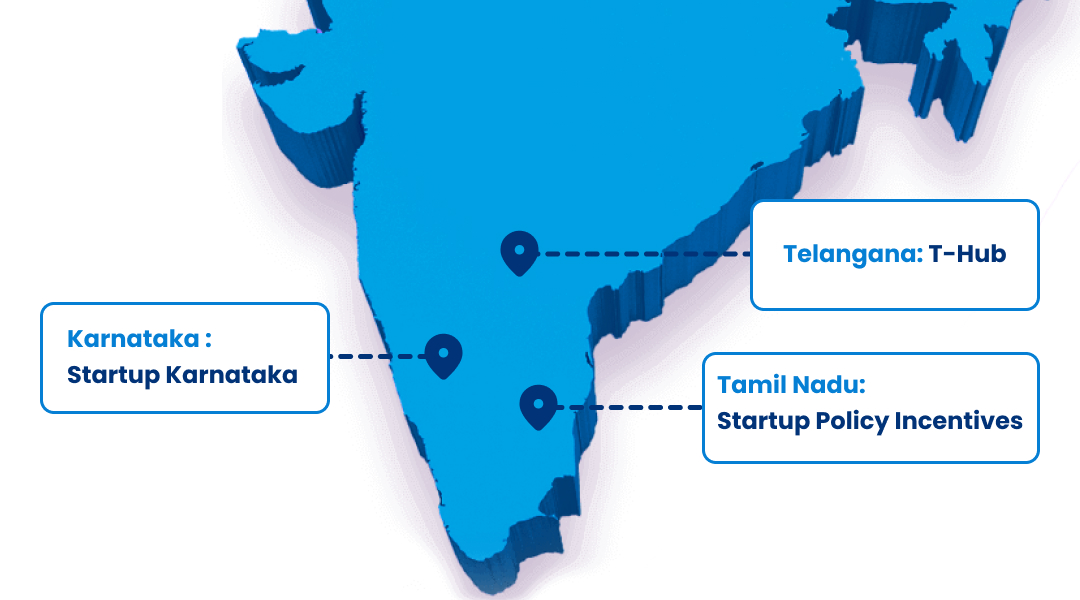India’s startup ecosystem is booming, with over 1.59 lakh startups recognized by the Department for Promotion of Industry and Internal Trade (DPIIT) as of January 15, 2025. This burgeoning sector is fueling innovation and driving economic expansion. However, startups often find it challenging to balance their finances and taxation. Startups should leverage various tax-saving strategies to minimize liabilities, reduce their tax burden, and reinvest more in growth. Here we provide our perspective and practical suggestions that startups can follow to ensure their tax exposure is minimized while staying compliant with regulations.
Tax Audit Requirement

As per the Income Tax Act of 1961, a tax audit is mandatory for businesses or professions that satisfy certain conditions. For startups, understanding when and how to comply with tax audit provisions is crucial in avoiding these repercussions. To avoid the pitfalls of complex tax regulations, MSMEs should consider working with a qualified advisor who can handle compliance and minimize administrative burdens. Here are some of the schemes that a qualified advisor would suggest:
1. Consider the Presumptive Taxation Scheme (Section 44AD)
Indian startups below the ₹2 crores turnover cap can avail the benefits under presumptive taxation provision,Section 44AD. In this easily accessible tax scheme, they declare 8% of their turnover; however, if 95% of the total turnover is paid through digital or banking modes, the limit increases to ₹3 crores as proposed in Budget 2023, and startups are only required to declare 6% of their total turnover. This scheme benefits newly registered startups with small amounts of funding and high burn rates. It allows them to spend more time and resources building the business rather than worrying about paperwork. Following proper eligibility guidelines and holding the necessary documentation is vital to ensuring the option is effective.
2. Utilize Startup Tax Exemptions (Section 80-IAC)
Startups authorized by the Department for Promotion of Industry and Internal Trade can apply for Section 80-IAC. Startups are allowed to fully deduct their taxable profits for any three consecutive years within the first ten years of incorporation. Explore the eligibility criteria and learn how to utilize these benefits by clicking this link.
In order to qualify, a startup must be incorporated after April 1, 2016, and meet DPIIT’s recognition criteria. The purpose of this regulation was to facilitate the growth of startups during their initial phase by providing tax benefits to encourage innovation, use of research and development, and foster a dynamic entrepreneurial system in India.
In the Union Budget 2025, Finance Minister Nirmala Sitharaman announced significant updates to Section 80-IAC of the Income Tax Act to further support the startup ecosystem in India. Previously, startups incorporated between April 1, 2016, and March 31, 2024, were eligible for tax benefits under this section. The new budget extends this period by five years, allowing startups incorporated until April 1, 2030, to avail themselves of these benefits.
3. Avail Reduced Corporate Tax Rates for Startups
If the annual turnover of a startup is under the threshold of ₹400 crore, it qualifies for a reduced corporate tax rate of 25%. This is a huge benefit, as they are relieved of the great financial stress of paying more for tax. As less is retained, this can in turn allow firms to spend more on the expansion of the business. Alternatively, it can also lead to more investment in the innovation of the business model.
If startups have clear plans for their desired turnover and the new tax rate, they can be more competitive and profitable. It is crucial to be punctual with the compliance norms and filing of returns to earn the benefits.
4. Claim R&D Deductions (Section 35)
Eligibility Criteria: (Clear Tax)
- Scientific research must be carried out in India.
- Research must be approved by the Department of Scientific and Industrial Research (DSIR).
- Expenses incurred must be exclusively or wholly for scientific research.
If a startup is doing any form of research or has been working on developing a new product, one of the ways to save on tax is to fill out Section 35.
- It allows you to claim tax deductions by saving your existing resources. This allows businesses to reduce their taxable income and invest in highly advanced solutions.
- To be eligible for the deduction under Section 35 of the Income Tax Act, you are required to fill out Form 3CK for the DSIR.
- Startups can claim R&D expenses for new or enhanced technology products. Proper documentation of R&D activities and their expenses is vital in claiming such a benefit.
5. Opt for the GST Composition Scheme (Section 10)
The GST Composition Scheme is a simplified tax option for small businesses in India, offering reduced tax rates and easier compliance. It is ideal for businesses with turnover under Rs. 1.5 crore (Rs. 75 lakh for some states) that deal primarily in intra-state sales, like traders, manufacturers, or restaurants.
The reduced GST based on the type of business is as follows:

6. Explore Government Incentives (Startup India, Make in India)
Programs such as Startup India and Make in India foster entrepreneurship by providing tax exemptions, grants, and other support. These schemes are aimed at helping registered startups grow their businesses when they need some initial assistance.
Startup’s applications under these programs allow them to get benefits like tax holidays, seed capital, and mentoring assistance.
To encourage development and growth, the government allows startups under the Startup India program to enjoy a tax-free period of 3 years within the first 10 years of operations. The Seed Fund Scheme offers funding of up to ₹50 lakh for growth in the early stage. The mentoring assistance facilitates mentorship for startups. It focuses on the appropriate strategies to adopt and the growth barriers to overcome. These strategies help startups ease their financial burden, secure funds, and accelerate their progress.
7. Maximize Depreciation Benefits
With additional depreciation provisions under the Income Tax Act, businesses can write off a larger portion of an asset’s cost early on, boosting cash flow for reinvestment. For example, startups in manufacturing or power generation can claim 20% additional depreciation on new machinery or plants.
Enhanced compliance and tax holidays (e.g., Section 80-IAC) further support growth, encouraging reinvestment in the business.
The extension of tax breaks until March 2025 shows the government’s commitment to supporting innovative startups. Startups can enhance financial performance and growth by strategically planning capital investments and monitoring policy changes.
8. Explore State-Specific Incentives

States like Karnataka, Telangana, Maharashtra, Uttar Pradesh, and Tamil Nadu offer a range of incentives to foster a thriving startup ecosystem. These initiatives include seed funding, grants for prototyping and research, subsidies for co-working spaces, financial incentives for adopting renewable energy solutions for GCC operations, and reimbursement of taxes and patent expenses.
Karnataka- Check out Karnataka’s ELEVATE 2024 and learn more about its benefits.
Telangana- Explore Telanga’s T-Hub and its startup support programs.
Tamil Nadu Learn how Startup TN can fuel your growth.
9. Utilize Loss Carryforward Provisions (Section 72)
Section 72 of the Income Tax Act enables startups to take advantage of loss carryover provisions. This allows losses from businesses to be applied against profits made in the subsequent eight years. This is effective as long as the startup files tax returns for applicable income and makes payments on time under Section 139(1). The startup monitors expense records to reduce taxes and costs, boosting future profit potential.
Startups registered under DPIIT are eligible for extra benefits. These companies can extend losses incurred during the first 10 years after incorporation for an additional 10 years, compared to the standard seven years. Also, even if there are changes in shareholding during the 10 years, the benefit still exists if the owner, who held more than 51% throughout the year the loss sustained.
10. Regularly Review Tax Laws and Seek Expert Advice
Tax regulations evolve frequently, making it crucial for startups to stay updated to remain compliant and maximize their benefits. Collaborating with the right tax professionals can be a game changer.
Astravise Service’s expertise in financial strategy directly aligns with effective corporate tax-saving strategies for startups in India. By streamlining operations and providing actionable insights, we ensure startups minimize tax liabilities while staying compliant.
Astravise Services offers tailored, industry-specific financial strategies to address unique challenges and opportunities. Through detailed discussions, we create bespoke plans that optimize tax savings, leverage incentives, and align operations with growth goals for long-term success. Partnering with Astravise Services enables your startup to focus on growth while maximizing savings through strategic financial and tax planning.
Connect with us today to craft a financial strategy that propels your startup toward sustainable growth!










